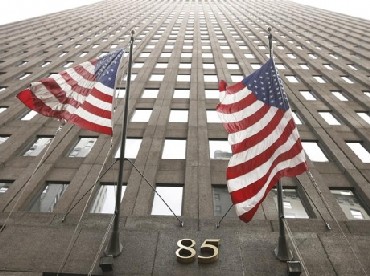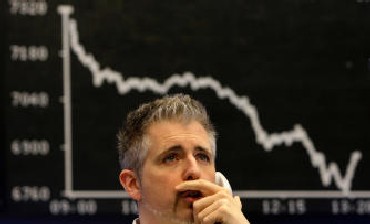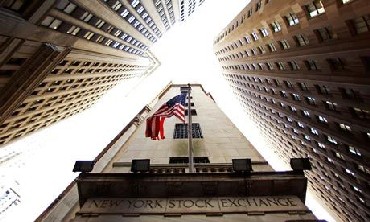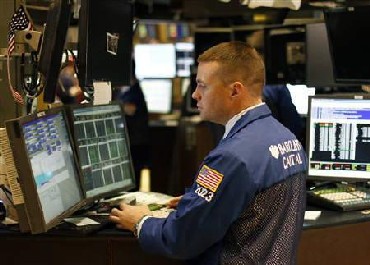Business Standard
Standard & Poor's (S&P) gave the US government some bad news earlier this month, lowering its AAA credit rating by one level to AA+ and assigning a negative outlook on it.
The US government reacted immediately, trying to deflect the blow by questioning the credit rating agency's analysis, claiming that the action was hasty and inaccurate.
The political fall-out of the US downgrade is not over. Republicans and Democrats are both trying to pin the blame on the other party, displaying their great skill in spinning news to score partisan political points.
According to press reports, the Securities and Exchange Commission is investigating the rating agency to see if the news of the downgrade had been leaked.
...
Look out for the great American tamasha
Other reports indicate that Congress may hold hearings about the downgrade, hauling S&P into the spotlight to justify its actions.
The political focus in America seems to be almost as much on the messenger of bad tidings, S&P, as on the message itself.
Beyond Washington, people in all walks of life, from late night comedians to city mayors, have entered the downgrade debate.
Columnists of all stripes, previously experts on foreign affairs or healthcare, have chimed in about the rating action, speaking in authoritative tones on the merits or faults of S&P's analysis.
The blogosphere, not surprisingly, has expressed the most extreme views, with some writers even questioning the "patriotism" of individual S&P analysts for daring to inflict such a severe blow on America. Conspiracy theorists are also happily at work.
...
Look out for the great American tamasha
The criticism of S&P focuses on both its analysis and its recent reputation. The sub-prime crisis in the US, which led to rapid downgrades of "AAA" rated bonds, hurt the reputation of all rating agencies.
Hence, critics charge that, having been slow to downgrade back then, S&P is now too fast to downgrade the US rating.
The charge is curious, for it implies that the rating agencies should have waited until the fiscal deterioration in the US had gotten even worse, thereby showing once again that rating agencies were too late in giving warning.
The second criticism, about S&P's analysis, seems to illustrate the old adage that truth is the first casualty in any conflict. US government officials have repeatedly implied that S&P somehow made a "$2 trillion error" in its calculations, undermining the value of the analysis.
...
Look out for the great American tamasha
In fact, as a careful review of public statements would show, the "error" reflects different views or assumptions that S&P and government agencies have made about government spending and other economic variables in making debt projections for the future.
As Stanford economist and former senior US Treasury official John Taylor wrote in his blog last week, the gap in the numbers reflects different assumptions about the pace of growth of discretionary government spending (2.5 or five per cent) over the next decade.
Net general government debt, the key ratio S&P cites, would reach 79 per cent of GDP by 2015 under the lower spending growth scenario, as opposed to 81 per cent under the alternative scenario with higher spending.
...
Look out for the great American tamasha
Photographs: Alex Grimm/Reuters
Similarly, by 2021 debt would reach 85 per cent of GDP under the slower spending growth scenario, compared with 93 per cent.
The gap between the two projected debt levels by 2021 is $2 trillion, the so-called "error". In fact, sovereign credit ratings focus primarily on a three- to five-year horizon, as S&P said in a press release.
S&P's key message is that the US government's debt will continue to rise inexorably as a share of GDP for the next decade despite the recent agreement to make some fiscal adjustments.
The debt level keeps rising even if everything that is promised in the recent debt deal, including implementation of $1.5 trillion in adjustments following the recommendations of a new committee that is supposed to report in November, is fully implemented and on time.
...
Look out for the great American tamasha
Photographs: Lucas Jackson/Reuters
Quibbling over the assumptions makes no difference. Under no reasonable set of assumptions does the debt level eventually stabilise in the coming years.
This sad reality will eventually sink into the American political system, and among ordinary Americans, even as the immediate political reaction is to seek scapegoats and create distractions.
No one likes to receive bad news. The American reaction to the downgrade appears to be very similar to the reaction of governments, media and some private sector in "emerging markets" following their own downgrades, perhaps one more sign of the "convergence" between the developed and emerging markets nowadays.
...
Look out for the great American tamasha
Photographs: Joshua Lott/Reuters
The reaction of many European leaders to credit rating downgrades in recent times seems not to differ from that of Asian or Latin American leaders facing downgrades in previous decades.
Some European politicians have suggested that things would have been better if there had been European agencies that would somehow better "understand" the local situation.
Translated into plain English, the hope is that a local agency would issue higher ratings. In fact, Fitch, one of the big three global rating agencies, is largely European-owned but it does not seem to have a very distinct view of the continent.
...
Look out for the great American tamasha
Photographs: Reuters
Sri Krishna told Arjuna in the Gita that in the face of doubt it is always better to follow your dharma, whether you do it well or badly.
People will continue to question the analysis of credit rating agencies, as they should. However, S&P seems to have followed Krishna's advice.
As for Americans, Winston Churchill once quipped that they always do the right thing, after they have tried everything else.
Today, the country is angry, confused and genuinely divided about how to get out of its problems. Americans will react to their debt problem in a manner that generates lots of tamasha and perhaps confuse outside observers.
However, let us hope they eventually focus on the problem, not the messengers, and prove Churchill right.
The author is a financial analyst in the New York City area.










article